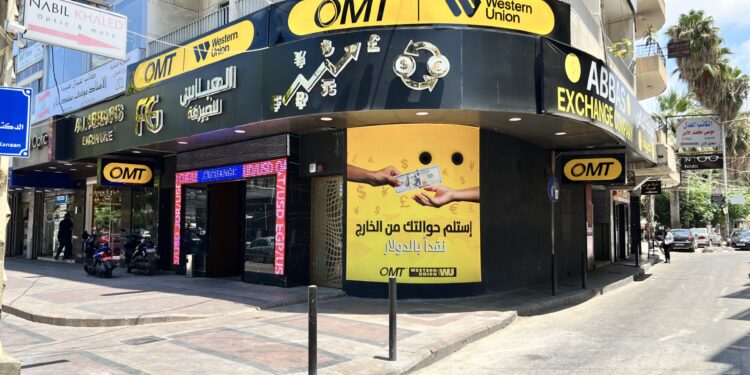Beirut- Fadi Al-Hallaq lost his popular bakery and source of livelihood due to the severe economic crisis that hit Lebanon in 2019, and he did not expect its great impact on his life.
After 25 years of running the bakery and attracting customers from all over the world, the barber found himself “at square one, empty-handed,” as he told Al Jazeera Net.
The barber complains about the enormous challenges he faced as the crisis worsened, forcing him to close down permanently after years of struggle. He was forced to “retire” at home, and now waits for a money transfer from his son in Saudi Arabia every month to help him live a decent life.
A $500 money transfer helps the barber cover his daily needs. Before, it was worth 750,000 Lebanese pounds when the dollar was worth 1,500 pounds. Today, it is worth 45 million pounds, as the dollar exchange rate has risen to 90,000 pounds.
The barber is going through an internal struggle with himself between his desire for his son to return and his fear that if he returns he will become unemployed like his father. He says with regret, “I am now 65 years old and my son is the one who supports us. What will we do if he returns?”
Monthly transfers in dollars
Many Lebanese families rely on remittances from expatriate relatives, and Nada Sleiman, an expat working in an African country and now vacationing in Lebanon, says she regularly sends money home to her family.
Nada explains that this financial support helps cover basic expenses, noting that her duty towards her family members requires her to do this, and she hopes that her transfers will contribute to improving their conditions, even a little.
For his part, Ahmed Al-Hajj explained to Al Jazeera Net that his son sends him $700 a month, and this amount is barely enough to cover the basic and necessary costs of living, including food and drink, which makes it an additional support to his main source of income.
As for Mohammed Al-Ali, he receives $1,500 a month from his daughter. He told Al Jazeera Net that he spends this amount on paying the rent and securing basic necessities, in addition to covering some entertainment expenses. Al-Ali considers this amount to be “good income, not just support.”
minimum cost of living
The latest report issued by the International Information and Statistics Company in Lebanon indicates that the cost of living for a family of four – which includes only the minimum necessary needs – has reached 52 million Lebanese pounds per month ($582) in rural areas, while it has reached 71 million Lebanese pounds per month ($794) in cities, excluding health care costs.
The report relied on the fact that the minimum rent for a house in the village is about $150 per month, while in the city it reaches $300 per month and perhaps more, depending on the area, the condition of the house and its size.
The minimum cost of generators per month is $40, while the minimum cost of food and consumer goods such as cleaning supplies, gas, etc. ranges between $250 and $300 per month.
Although the Lebanese Council of Ministers approved a decree on March 26, 2024, raising the minimum wage from 9 million to 18 million Lebanese pounds, this increase did not match the rising cost of living, making ongoing financial transfers even more important in maintaining the livelihood of Lebanese families.
Support the national economy
In addition, these remittances play a pivotal role in supporting the national economy, as the World Bank estimated the volume of expatriate remittances coming to Lebanon at $6 billion in 2023, compared to $6.4 billion in 2022, placing Lebanon in third place regionally, preceded only by Egypt ($19.5 billion) and Morocco ($11.8 billion).
Financial and economic researcher Dr. Imad Farran says that Lebanon witnessed a large influx of remittances in 2019, part of which was used to increase deposits in Lebanese banks, another part for local investments and support for small and medium enterprises, while a third part was allocated to support Lebanese families.
As the crisis worsened and deposits declined, remittance trends changed to become more used to support families and daily consumption, and Farran believes that this shift has become an essential part of the current economic cycle in Lebanon.
He added that these financial transfers enter Lebanon through several channels, including banks and licensed companies, as well as through land and air borders, i.e. upon the return of expatriates.
Enhance purchasing power
For his part, Dr. Imad Akoush, an expert in economics and financial markets, confirms that the great importance of expatriate remittances lies in their role in enhancing purchasing power and mitigating the effects of inflation, thus preserving the standard of living of Lebanese families.
Speaking to Al Jazeera Net, Akoush said that 1.5 million Lebanese families benefit from these transfers, with an average of about $15,000 per year for each family, which contributes to a monthly income estimated at about $1,250 per family.
Akoush believes that these transfers contribute to improving access to education, health care and housing, which are very expensive services at the present time in Lebanon, especially after the “dollarization” of these services (i.e. paying for them in dollars rather than in the local currency).



